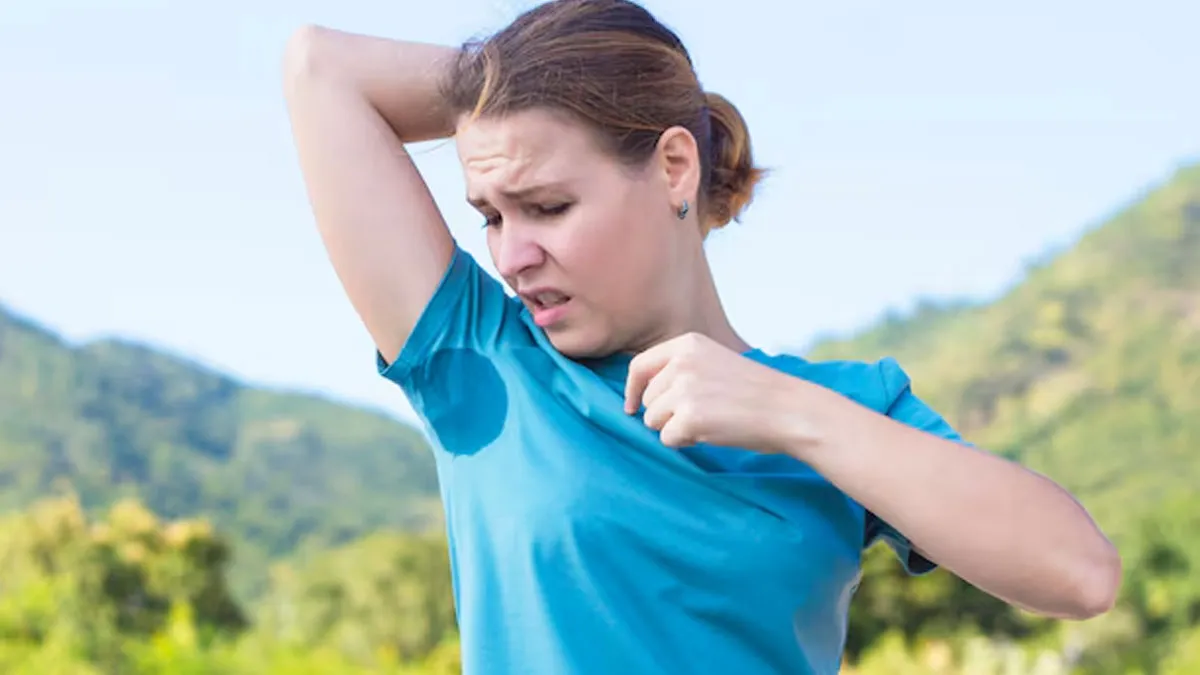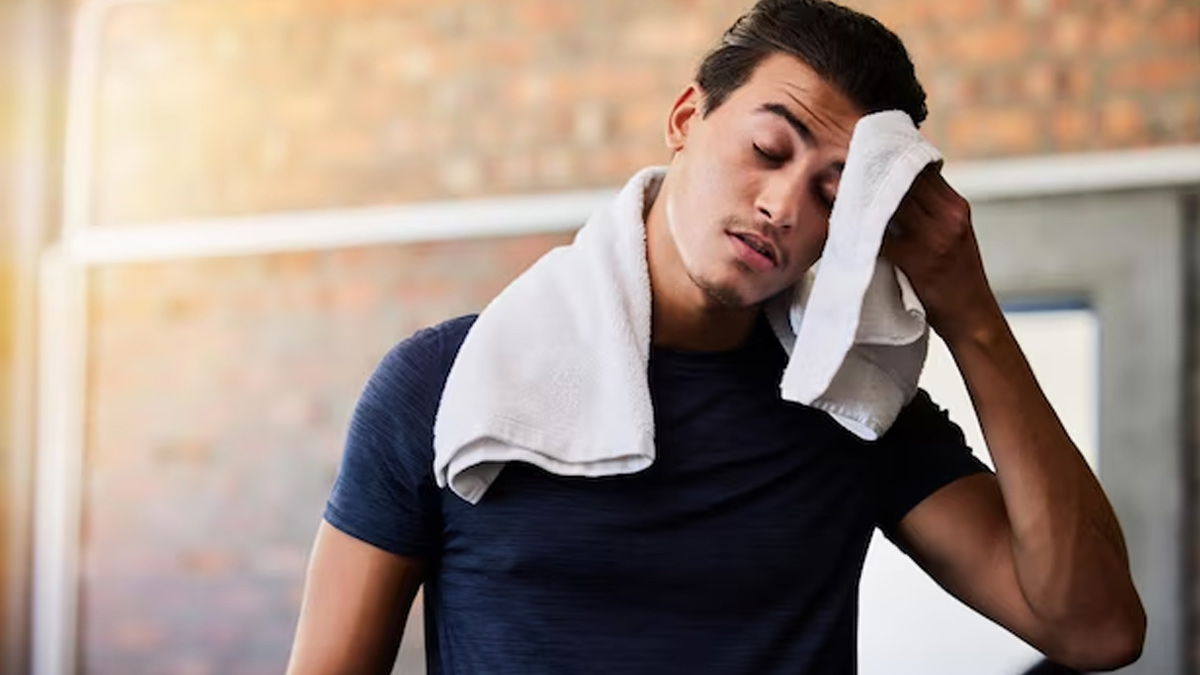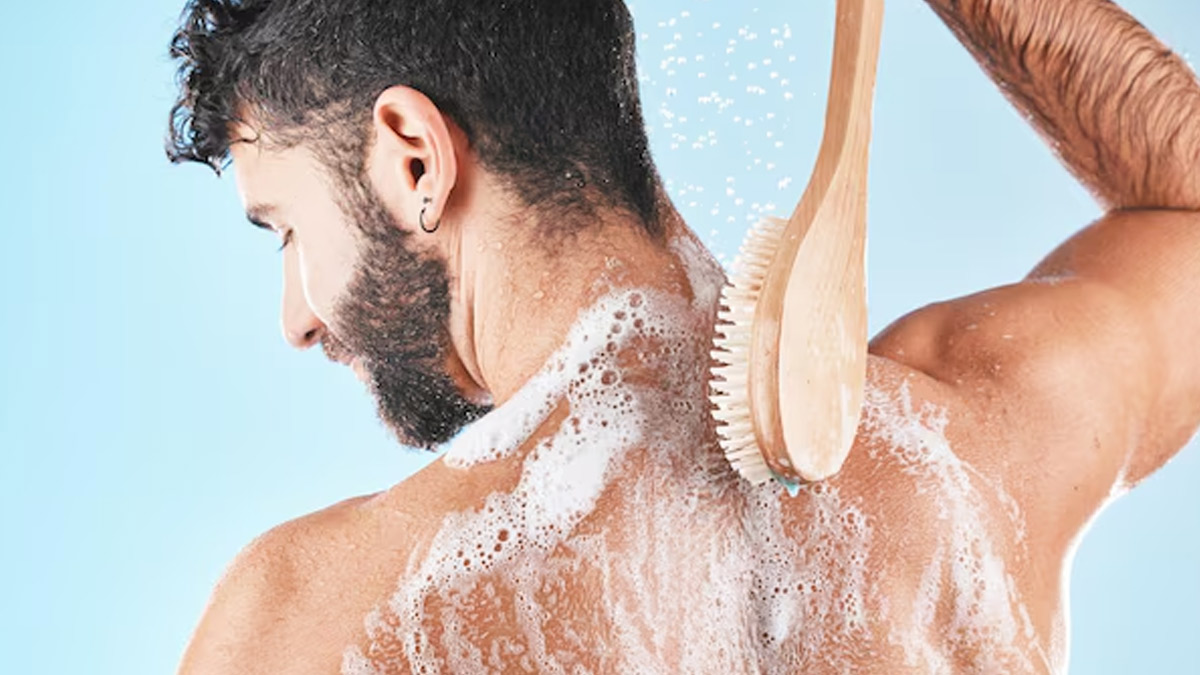
Have you ever felt like your body odour hits differently now than it did in your early twenties? If you’ve started to notice stronger smells after a summer commute or find yourself reapplying deodorant more often than you used to, age might have something to do with it. While sweat is a normal response to rising temperatures, you may find that body odour becomes more pronounced as you age, particularly after 25.
Table of Content:-
This may result in a not-so-fresh feeling even when your hygiene game is strong. We spoke to Dr Sai Lahari Rachumallu, Associate Consultant Dermatology, Manipal Hospital, Bhubaneswar, who decoded this phenomenon.
Why Do We Sweat?

Sweating is a completely normal and necessary body function. It’s your body’s built-in air conditioning system, designed to regulate internal temperature and prevent overheating. It is, in fact, odourless when it exits your sweat glands.
"What produces the stinky smell is the reaction between sweat and the naturally occurring bacteria on your skin. The bacteria ferment sweat ingredients, particularly those of specific sweat glands, and release volatile, pungent chemicals as a byproduct," explained Dr Rachumallu.
Also Read: Let’s Talk About Bacne, Boob Sweat And Ingrowns: The Body Care Guide Nobody Gave You
Two Sweat Glands, Two Different Jobs
To understand body odour, you need to know about the two main types of sweat glands:
- Eccrine glands: These are located everywhere on your body and secrete a water-based, salty sweat. Their main function is to cool you. This sweat usually doesn’t smell.
- Apocrine glands: These are concentrated in the armpits, groin, and scalp. They kick into action during stress, emotional arousal, or hormonal fluctuations. Apocrine sweat is thicker and richer in proteins and lipids, which bacteria love to break down, resulting in that body odour.
What Changes After 25?
Your sweat composition and body odour don’t remain the same throughout your life. After around age 25, certain changes in your body make odour more noticeable or even more intense.
Hormonal Shifts
As you age, hormonal fluctuations begin, even if subtly. These changes affect how active your apocrine glands are and can increase their sensitivity to emotional and physical triggers. In other words, stress or anxiety could make you smell more.
Changes in Skin Bacteria
Dr Rachumallu points out that after 25, there’s often a rise in Corynebacterium species on the skin, bacteria that are particularly efficient at breaking down apocrine sweat into pungent compounds.
Lifestyle and Clothing Choices
Tight clothing, synthetic fabrics, poor ventilation, and processed diets can trap sweat and feed bacteria, making odour worse. Adults also sweat more due to increased physical or mental stress, work deadlines, parenting, and social pressures.
Also Read: Summer’s Role In Detoxing The Body: How Sweating Helps Improve Reproductive Health
How to Manage Body Odour Effectively

Hygiene First
Shower twice a day with antibacterial or pH-balanced soap.
Prioritise sweat areas, such as underarms, groin, and feet.
Trim or Shave Underarm Hair
Less hair means fewer surfaces for bacteria to cling to and multiply.
Use a Clinical-Strength Antiperspirant
Look for products with aluminium salts that reduce sweat production and kill bacteria.
Wear Breathable Fabrics
Loose-fitting, cotton or moisture-wicking clothes help prevent sweat buildup and allow skin to breathe.
Watch What You Eat
Foods rich in sulphur (garlic, onions, and cabbage), processed junk, and excess alcohol can alter your body odour. Instead, eat more fresh fruits, leafy greens, and stay well-hydrated.
Manage Your Stress
As emotions also initiate apocrine sweat, stress control is vital. Meditate, keep yourself active, and have a healthy sleeping schedule to ensure sweat (and smell) remains under control.
When to See a Dermatologist
Dr Rachumallu concluded, "If you've tried all the hygiene tricks and still find your body odour unusually strong or persistent, it might be more than just a lifestyle issue. Conditions, such as bromhidrosis (pungent body odour) may need medical treatment. Treatment can range from prescription-strength deodorant to injections of Botox, to even gland removal in severe cases."
[Disclaimer: This article contains information provided by an expert and is for informational purposes only. Hence, we advise you to consult your professional if you are dealing with any health issue to avoid complications.]
Also watch this video
How we keep this article up to date:
We work with experts and keep a close eye on the latest in health and wellness. Whenever there is a new research or helpful information, we update our articles with accurate and useful advice.
Current Version